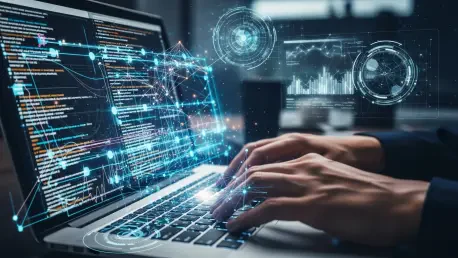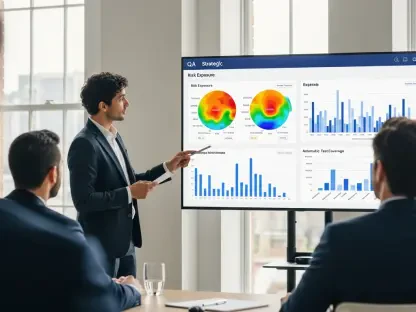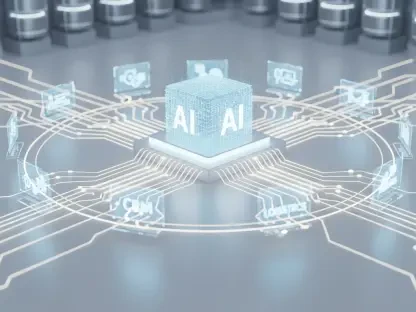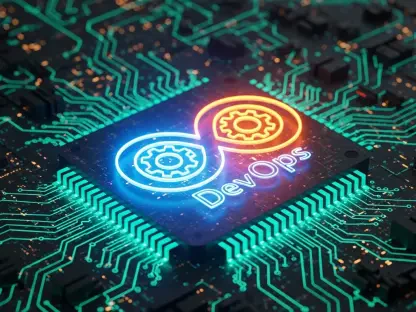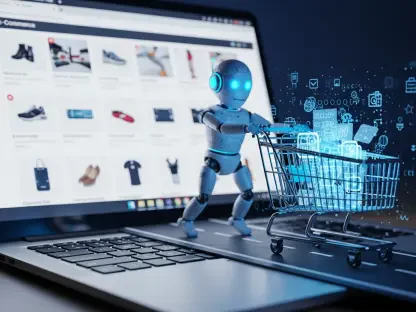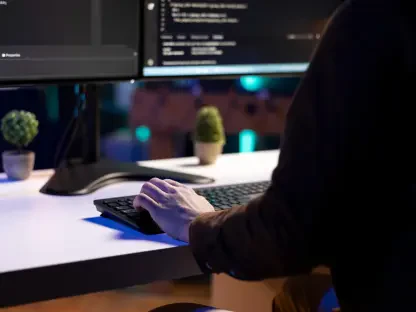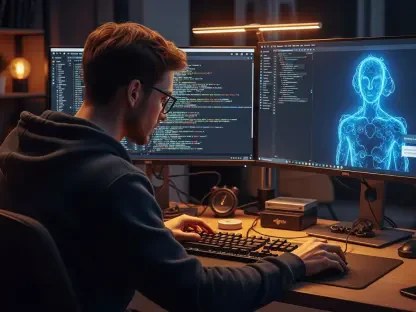I’m thrilled to sit down with Anand Naidu, our resident development expert, whose proficiency in both frontend and backend development, along with his deep insights into various coding languages, makes him a true authority in the field. Today, we’ll dive into his perspectives on the evolving dynamics of software development, particularly the impact of AI assistants on collaboration, critical thinking, and knowledge sharing among developers. We’ll explore how these tools compare to traditional human partnerships and discuss the potential challenges and benefits they bring to the table.
How did your team approach studying the differences between human-human and human-AI collaboration in software development?
We conducted an empirical study with student participants who had programming experience. The idea was to simulate real-world pair programming scenarios by splitting them into two groups: some worked with a human partner, while others teamed up with an AI assistant like GitHub Copilot. We designed tasks that involved developing algorithms and integrating them into a shared project environment. Our focus was on observing how knowledge transfer, problem-solving, and critical evaluation played out in each setting.
What motivated you to compare traditional pair programming with human-AI partnerships?
Pair programming has long been a staple in software development because it reduces errors and fosters learning through collaboration. With AI assistants becoming increasingly popular, we wanted to see if they could replicate those benefits or if there were gaps. It’s a shift that’s happening rapidly in the industry, so understanding the nuances of how developers interact with AI versus a human colleague felt crucial to shaping future practices.
Can you describe the specific tasks participants tackled during your study and why you chose them?
We had participants work on developing algorithms and integrating them into a shared codebase. These tasks were chosen because they mirror common challenges in software projects, requiring both technical skill and collaborative problem-solving. They allowed us to observe how participants discussed issues, proposed solutions, and critiqued each other’s—or the AI’s—contributions in a realistic context.
What stood out to you about how developers interacted when working with an AI assistant compared to a human partner?
One clear difference was the depth of interaction. With human partners, discussions often went beyond the immediate code, touching on broader strategies and ideas. With AI, the focus stayed narrow, mostly on the code itself. Developers tended to just accept AI suggestions without much debate, whereas human pairs engaged in more back-and-forth, challenging each other’s input. It was striking how the AI interactions lacked the richness of human dialogue.
Why do you think developers tend to be less critical of AI-generated code compared to code from a human colleague?
I think it comes down to a mix of trust and complacency. Developers often assume AI tools are reliable because they’re built on vast datasets and marketed as efficient solutions. There’s a tendency to think, ‘This must be correct,’ without digging deeper. With a human colleague, there’s more of a natural instinct to question and verify since we’re aware of each other’s potential for error. It’s a subtle but significant difference in mindset.
What are some potential downsides of this lack of skepticism when using AI tools in development?
The biggest risk is accumulating technical debt—those hidden issues in the code that pile up and become costly to fix later. If developers aren’t scrutinizing AI suggestions, flawed or suboptimal code can slip through, leading to bugs or inefficiencies down the line. Over time, this can slow down projects, increase maintenance costs, and even compromise software quality, which is a serious concern for long-term development.
Can you explain what technical debt means in this context and how AI might contribute to it?
Technical debt refers to the future cost of rework needed when we take shortcuts or accept less-than-ideal solutions in the present. In software development, it’s often about quick fixes or unoptimized code that works now but creates problems later. With AI, if developers uncritically accept generated code that isn’t well-structured or contains subtle errors, they’re unknowingly adding to this debt. It’s like borrowing time now but paying a higher price in debugging or refactoring later.
How does knowledge sharing differ between working with a human partner versus an AI assistant based on your observations?
Human collaboration excels in knowledge sharing because it’s dynamic and multifaceted. Developers discuss not just the problem at hand but also share strategies, experiences, and insights that build collective expertise. With AI, the exchange is more transactional—focused on immediate answers rather than deeper learning. While AI can provide quick solutions or ideas, it doesn’t replicate the mentorship or contextual understanding that human partners offer.
What do you see as the key strengths and limitations of AI assistants in software development right now?
AI assistants are fantastic for repetitive, straightforward tasks. They can churn out code quickly, suggest boilerplate solutions, and save time on mundane aspects of development. However, their limitations show up with complex problems that require nuanced understanding or creative problem-solving. They also can’t match the depth of human collaboration for knowledge exchange or critical feedback. Right now, they’re best used as supportive tools rather than full replacements for human partners.
What is your forecast for the role of AI in software development over the next decade?
I believe AI will become even more integrated into development workflows, handling increasingly sophisticated tasks as the technology evolves. We might see AI tools that better mimic human-like critical thinking or adapt to specific project contexts. However, I think the human element—collaboration, creativity, and skepticism—will remain irreplaceable for complex challenges. The future likely lies in hybrid models where AI augments human skills, but only if we address issues like over-reliance and ensure developers maintain a critical eye.
